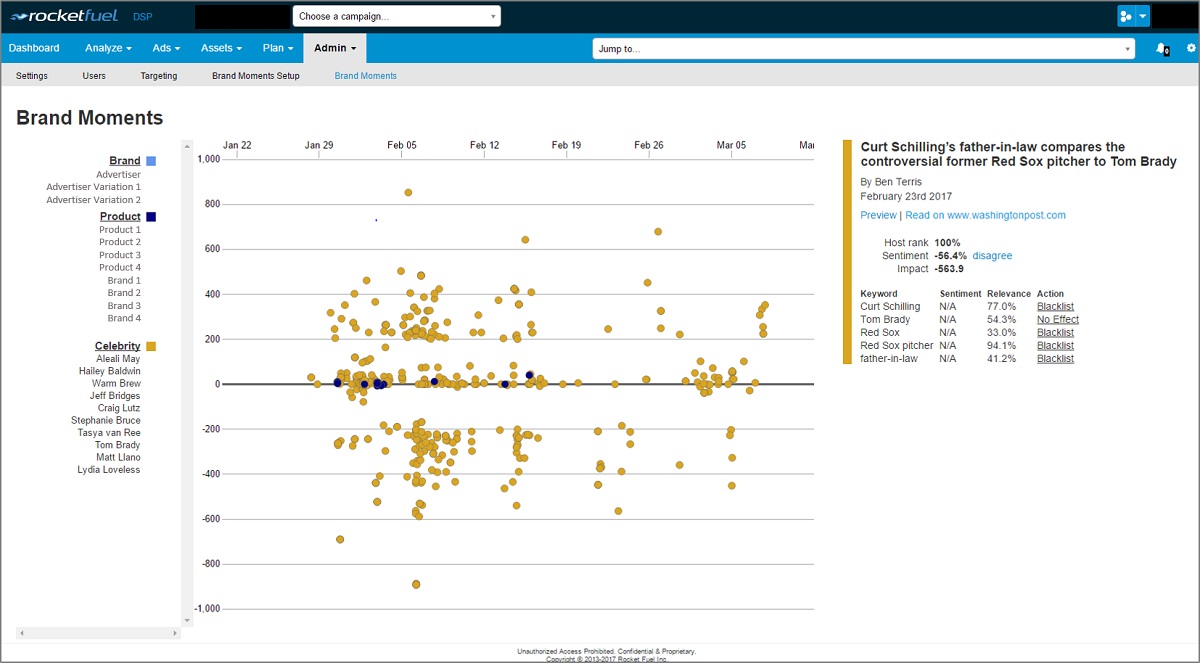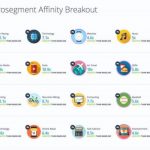IBM’s Watson helps turbocharge Rocket Fuel with more brainpower
The predictive marketing platform adds Watson to its existing AI so as to better understand the content where ads will land.
The predictive marketing platform Rocket Fuel began in 2008 as a demand-side ad-buying platform, with artificial intelligence (AI) helping to steer ad placements from the start.
It now also employs its AI to help inform marketing decisions made through other channels, such as selecting the most effective content for website visitors or choosing the best email message for a certain segment of email recipients.
But the Redwood City, California-based company decided it needed a boost to its onboard intelligence, and it recently announced the alpha phase of a new integration with IBM’s Watson Discovery service.
Called Brand Moments, this integration utilizes Watson to help decision-making for ad buying and placement, including display, video and native ads on sites, apps, Facebook, Twitter and other inventory.
Watson identifies keywords and sentiment in surrounding content where ads might be placed, and an advertiser manually determines whether that page should be blacklisted or ignored, or if no effort should be applied. Here’s a sample screen for a story about football player Tom Brady and baseball player Curt Schilling:
Of course, keyword location and sentiment analysis are common these days, but the idea is that Watson is going beyond those tasks to render his opinion based on the content’s meaning.
Brand safety has become a big deal, but deciding to exclude, say, an extremist site like Breitbart News as possible inventory is relatively simple. The bigger challenge that Rocket Fuel is exploring is whether to place ads next to content that is harder to qualify.
Rocket Fuel VP of Strategic Partnershiips John Mruz suggested a use case where an auto company might place an ad next to a story in The Washington Post that is headlined: “[Auto company] does not plan to build more US factories despite Trump’s claims.”
In this case, Watson would give his opinion about whether the contextualizing content is more positive than negative, so the advertiser can determine if an ad should run nearby. Watson updates the Rocket Fuel dashboard every seven minutes, thus helping to keep up with the rapid news cycles.
As this is an alpha test with three unnamed brands, Rocket Fuel is looking toward more ways in the future where Watson can lend a hand, so to speak.
For instance, Mruz said, at some point Watson might help to tailor ads — by selection or dynamic construction — that match the content, or he might predictively estimate if a targeted segment of users would be responsive. Or he might take over manual determination of whether to blacklist or take no action.
“Two years ago,” Mruz said, “if you asked me how we can innovate, I would have said [we can innovate with] more data.”
These days, he told me, there’s plenty of data.
“Now, I’m looking for more intelligence,” Mruz said, adding that Rocket Fuel will continue to ally itself with other AI services.
Marketing Land – Internet Marketing News, Strategies & Tips
(66)
















